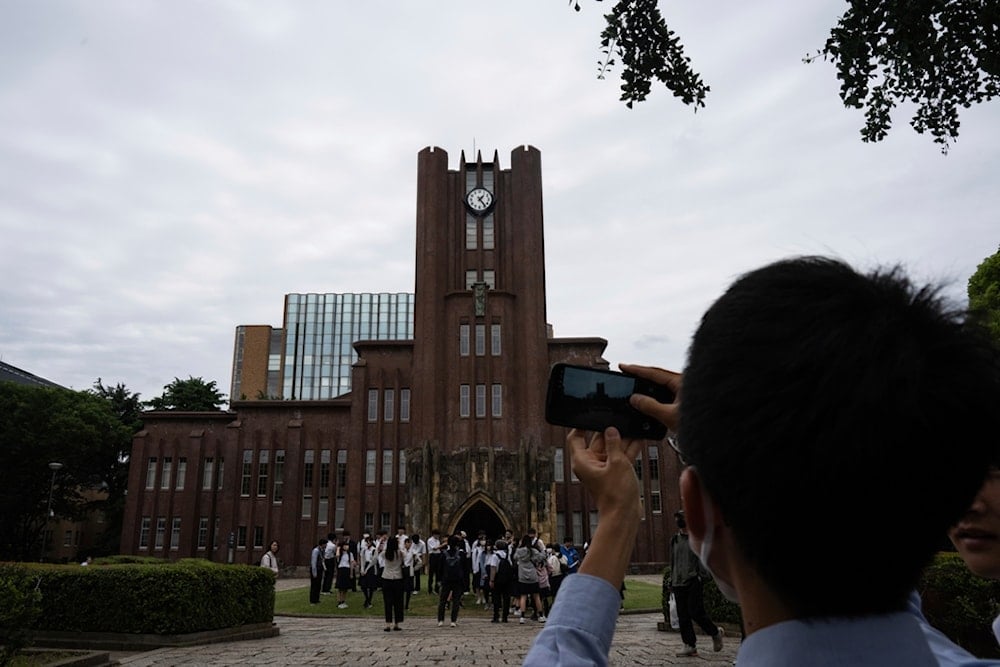Japan universities offer haven to foreign scholars amid US crackdown
Nagoya University has confirmed its readiness to receive global scholars, stating that preparations are underway to expand support for incoming international students.
-

Visitors take photographs of the Yasuda auditorium at the University of Tokyo in Tokyo, Tuesday, May 27, 2025. (AP Photo/Louise Delmotte)
Amid a sweeping crackdown on foreign students in the United States, leading Japanese universities are preparing to welcome displaced doctoral researchers and international scholars, particularly those affected by recent visa restrictions and political targeting under the Trump administration.
According to a report by Kyodo News Agency, Osaka University and Nagoya University have announced new initiatives to host researchers and students from US institutions such as Harvard, which has come under direct attack from federal authorities. Osaka University has committed to accepting up to 100 international researchers, regardless of nationality, and has earmarked between 600 million and 1 billion yen (roughly $4–6.6 million) to fund the program. Applications are expected to open soon.
Nagoya University has also confirmed its readiness to receive global scholars, stating that preparations are underway to expand support for incoming international students.
These developments follow last week's decision by US Homeland Security Secretary Kristi Noem to revoke Harvard University's authorization to host foreign students for the 2025–2026 academic year. The measure, temporarily blocked by a Massachusetts federal court, was widely condemned as part of a broader campaign targeting pro-Palestinian activism on US campuses. More than 7,000 students were affected, with many forced to seek alternative academic institutions.
US President Donald Trump has intensified the pressure on Harvard, demanding that the university release the identities of its foreign students. He has accused the institution of "antisemitism" and claimed that "the high percentage of foreign students negatively affects the education of Americans." On social media, Trump suggested redirecting Harvard's $3 billion in federal grants to trade schools, further escalating the administration's confrontation with academia.
Academic exodus
The visa crackdown extends beyond Harvard. The State Department, under Secretary Marco Rubio, has halted new student visa interview appointments and is moving ahead with mandatory social media screenings for all foreign applicants. Rubio also admitted to revoking thousands of student visas during the nationwide wave of pro-Palestinian protests. International students at UCLA, Columbia, and Stanford have already seen their visas cancelled for alleged involvement in activism.
In this climate of political hostility and academic uncertainty, Japanese universities are emerging as stable alternatives. According to Japan's Ministry of Education, approximately 110 Japanese students and 150 researchers are currently based at Harvard.
With US policy increasingly viewed as punitive toward foreign scholars, Tokyo's academic institutions are positioning themselves as safe harbors for students caught in the crossfire.
Read more: After Trump's Harvard ban, China invites students with offers

 3 Min Read
3 Min Read










